UM-Flint faculty to present innovative ideas at April 19 networking event
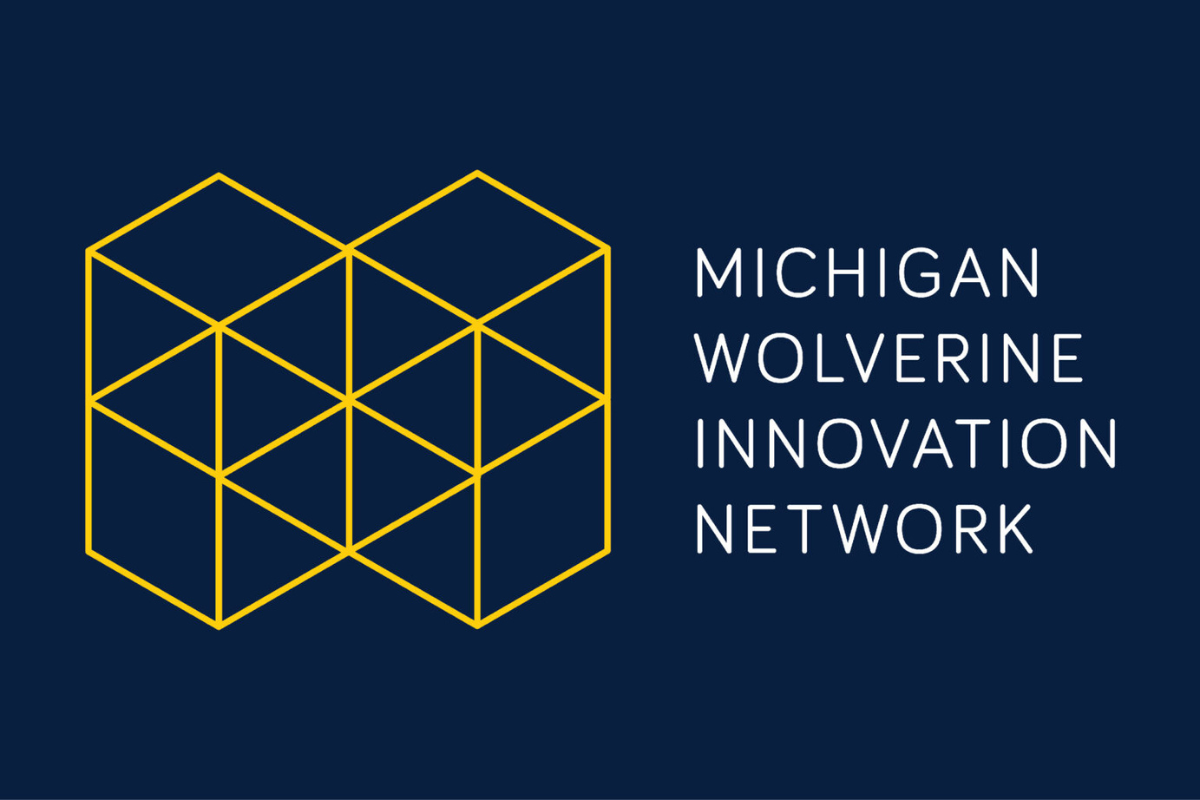
"Tell me and I forget, teach me and I may remember, involve me and I learn." — Benjamin Franklin
From the lips of a Founding Father to the ears of a half dozen University of Michigan-Flint faculty members each year, so goes the process of being a fellow within the Michigan Wolverine Innovation Network. MWIN is a signature program of UM-Flint's Office of Economic Development and EDA University Center for Community and Economic Development.
The project, which seeks to foster a campus culture of innovation, creativity, and an entrepreneurial mindset throughout all academic disciplines, works to achieve its goals by building relationships among faculty, students, community and industry partners to solve entrepreneur and industry-identified problems and leveraging institutional resources for proof-of-concept commercialization.
"The fellows will participate as a cohort in virtual and in-person workshops focused on entrepreneurship and the innovation process," said Paula Nas, OED director. "They will be guided from ideation to product development, launch, and potential innovation commercialization. We encourage faculty from all academic disciplines to apply, and as such, innovation is defined broadly."
MWIN's "Class of 2024" will present their projects to the campus community, 9-11 a.m., April 19, 251 French Hall. Participating faculty includes:
Amal Alhosban

Alhosban is an associate professor of computer science in the College of Innovation and Technology. Her innovation, titled "Cloud Vendor Look-in Prediction Framework," focuses on addressing the vendor lock-in challenge in cloud computing. Vendor lock-in occurs when a customer heavily relies on a specific cloud provider, making it challenging to switch providers due to technical, contractual, or other factors. This dependence may result from proprietary technologies, formats, interfaces, exclusive licensing terms, or custom configurations.
The proposal aims to collect data, investigate the vendor lock-in challenge, and develop a method to calculate the dependency level between service consumers and providers. This method is designed to predict and reduce vendor lock-in by assessing the level of dependency.
The main contributions of the proposal include:
- Comprehensive analysis of cost structures related to diverse cloud service providers, enabling effective comparison of economic aspects and enhancing decision-making processes.
- Evaluation of the level of dependency on each cloud service provider, providing critical insights for strategic planning and risk mitigation.
- Empowerment of service consumers to make strategic choices aligned with organizational objectives, minimizing the risk of vendor lock-in and potentially reducing overall service costs.
"The MWIN Faculty Innovation Fellowship aligns perfectly with my commitment to pushing educational boundaries," said Alhosban. "I'm excited about collaborating with fellow educators, exploring new methodologies, and contributing to a community focused on transformative teaching practices. This fellowship offers a unique opportunity to enhance my teaching skills and share successful strategies with a broader educational audience. I'm eager to embark on this journey of innovation and growth."
Khalil Khanafer
Khanafer is an assistant professor of engineering in the College of Innovation and Technology. The focus of his innovation, titled "Ergonomic Jig Hook Stand: A Practical Solution for Extreme Tremors or Shaky Hands," centers on manufacturing a jig hook stand tailored to individuals dealing with shaky hands or extreme tremors. According to Khanafer, it signifies an innovative approach aimed at improving accessibility and facilitating fishing or fly-tying activities.
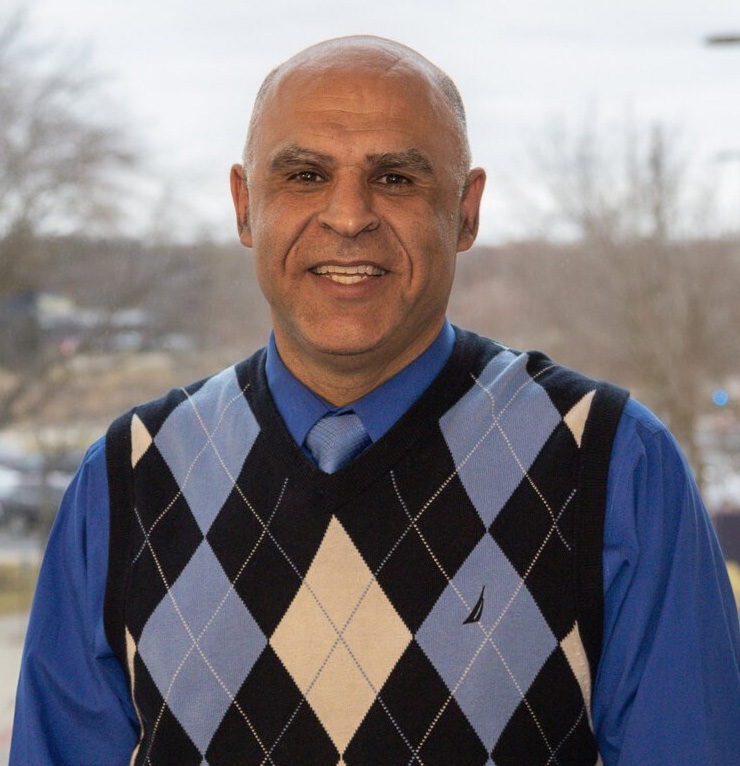
By utilizing advanced 3D printing technology, this specialized stand is carefully engineered to ensure stability and user-friendly engagement. Emphasizing a wider and heavier base design is crucial to prevent tipping and establish a reliable foundation. Incorporating anti-skid or non-slip materials on the base further enhances stability, securing the stand firmly on surfaces. The stand's height is optimized for user comfort, granting individuals with shaky hands easy access to jig heads without straining. Integrating cushioned grips and visual aids contributes to a secure grip, minimizing the risk of accidental drops and aiding in the precise alignment and positioning of the jig head.
Through the 3D printing process, intricate details, anti-slip features, and ergonomic contours are seamlessly integrated, resulting in a jig hook stand that not only supports the functional aspects of the activity but also addresses the unique challenges faced by those with shaky hands or extreme tremors.
"In my role as a CIT faculty member, my ongoing research centers extensively on the application of 3D printing technology across diverse fields," said Khanafer. "Through the MWIN Faculty Innovation Fellowship, my objective is to gain insights into the practical implementation of ideas. I am particularly keen on bridging the gap from conceptualization to actualization. Additionally, I am excited about enhancing my understanding of innovation, aspiring to serve as a valuable resource for students interested in creating and advancing their products."
Khalid Malik
Malik is a visiting professor of computer science in the College of Innovation and Technology.
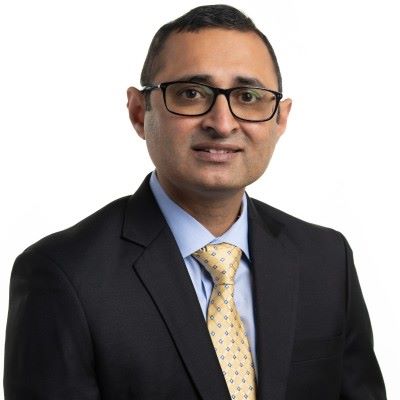
Drawing on a decade of research, Malik is currently engaged in the development of two groundbreaking technologies. The Deep Forgery Detector is designed to identify fraudulent audio, video, and images, while the neuroassist is a predictive tool for anticipating neurological and cardiovascular events such as strokes.
"The primary objective of the MWIN initiative is to explore the applicability of both tools across various industries," said Malik. "This involves comprehending potential sales channels, establishing startup ventures, launching the products, and addressing other aspects of the commercialization process. With a sense of cautious optimism, I believe that the ongoing customer discovery efforts and MWIN training will pave the way for the successful commercialization of both."
Cathleen Miller
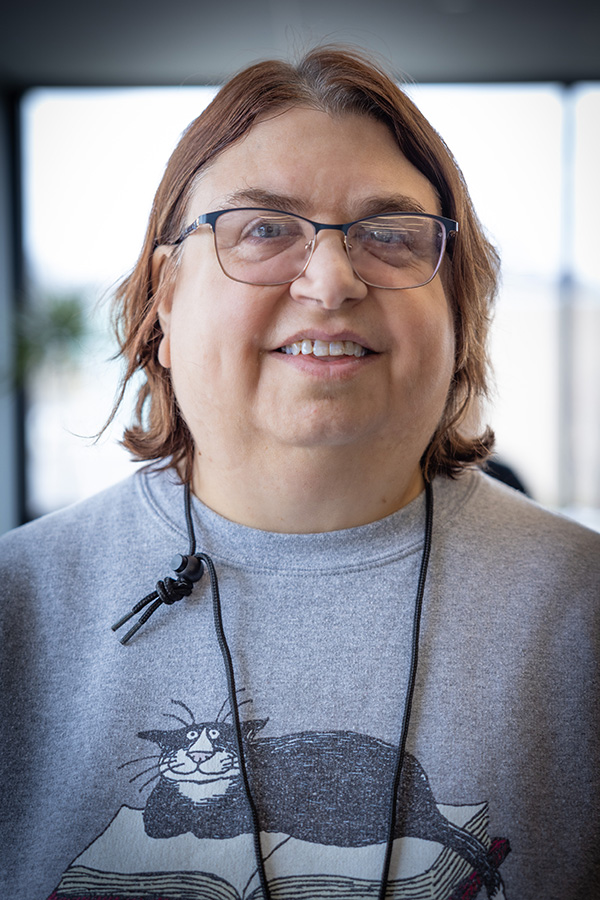
Miller is an associate professor of accounting in the School of Management. Her innovation is related to the Volunteer Income Tax Assistance Program, which has assisted the Flint community with their tax preparation for 40 years.
"I applied for the MWIN Faculty Innovation Fellows Program to help me with my concerns with the VITA program," Miller said. "I am looking for assistance in helping improve the program's process as clients wait a long time to complete their returns. I'm hoping to find ways to shorten the wait time by removing bottlenecks in the process."
Matthew Spradling
Spradling is an associate professor of computer science in the College of Innovation and Technology. His innovation is titled "OpenLabel," a free and open-source media labeling Chrome browser extension under development by a UM-Flint research cohort including students and faculty and led by Spradling.
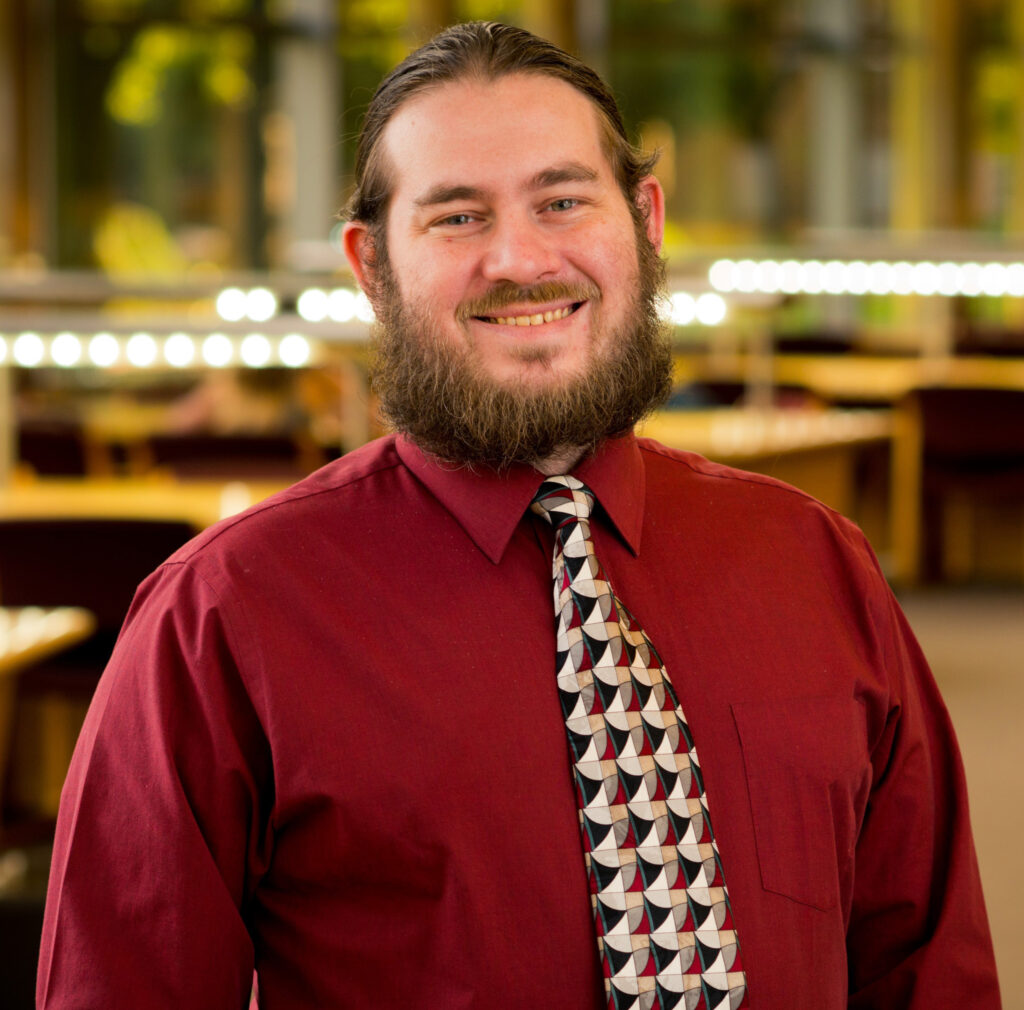
OpenLabel is an informational labeling system similar to the nutrition facts information seen on consumer food products but designed to inform users about their online news media content. Users would control how the label is displayed and which categories of information would be included.
According to Spradling, this would allow users to become better informed about news articles and their sources before opening the piece. A working prototype, with features based on user preferences from a representative survey of the U.S. population, is now in its second testing phase.
"The spread of misinformation online may be the great challenge of our generation," said Spradling. "It is, simply put, a threat to all trust. The improper response could damage the civil liberties we would otherwise seek to protect. Given the stakes, I am seeking the support of this program to help navigate the legal and ethical challenges my area of work represents. I hope to move forward on steady ground while taking the boldest steps towards a more credible internet."
Doug Zytko
Zytko is a visiting associate professor of computer science in the College of Innovation and Technology. His innovation is titled "Computer-Mediated Consent Mechanics." It relates to his recent research, which has focused on computer-mediated consent to interpersonal behavior as a lens to understand and mitigate sexual violence, as well as consent to personal data collection for training AI models. In other words, consent is between people and between humans and machines.
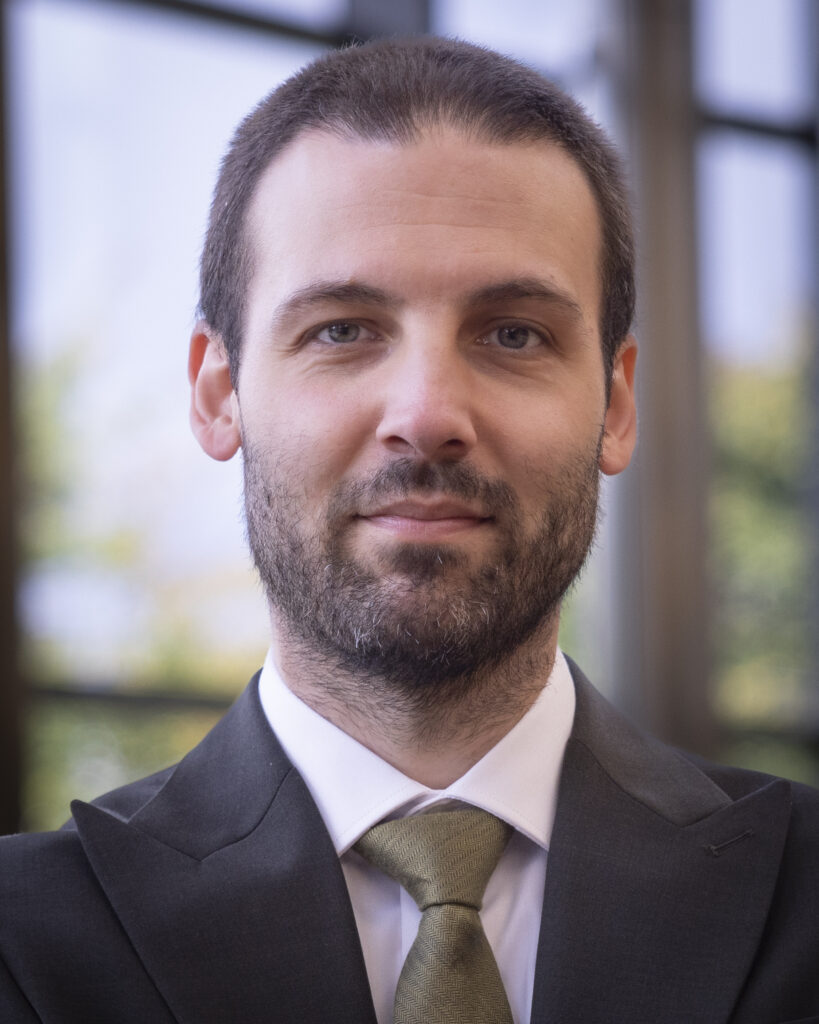
The innovations from this research are "consent mechanics," or technologies that scaffold how people give and receive consent, either to another person during an interaction or to a machine for collecting and processing their personal data. These can be standalone applications/devices or additions to existing social platforms.
Zytko's lab has already produced a fully functioning Android application for "data donation," or voluntary and consensual contribution of personal data for training AI models as the result of an ongoing NSF-funded project. The users donate data regarding sexual experiences online, which is intended to enable novel forms of sexual risk detection AI.
"I'm excited to participate in the MWIN program as an important step towards translating my research into publicly accessible technologies to mitigate interpersonal harm and foster more consensual relationships between our personal data and industry partners that leverage that data for AI-driven products," Zytko said.
"I would like to explore the commercialization potential of both inventions because of the potential to disrupt the prevalence of unintentional sexual harm and the currently opaque and dubiously ethical approaches to collecting personal data for AI."
Funding for the winter 2024 MWIN program is provided in part by the C.S. Mott Foundation and the U.S. Economic Development Administration.
Related Posts
No related photos.
Robb King
Robb King is the director of marketing and communications at UM-Flint. He can be reached at [email protected].